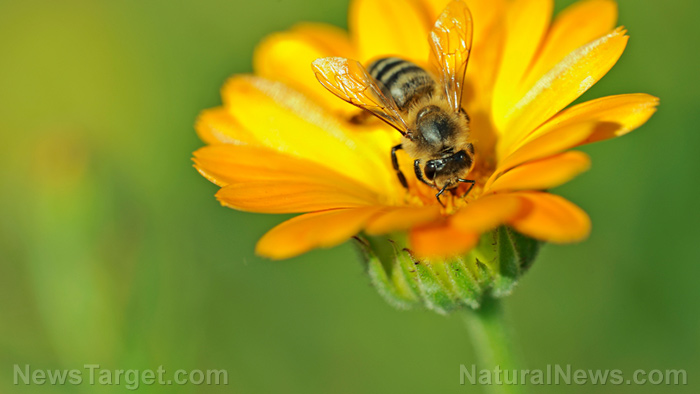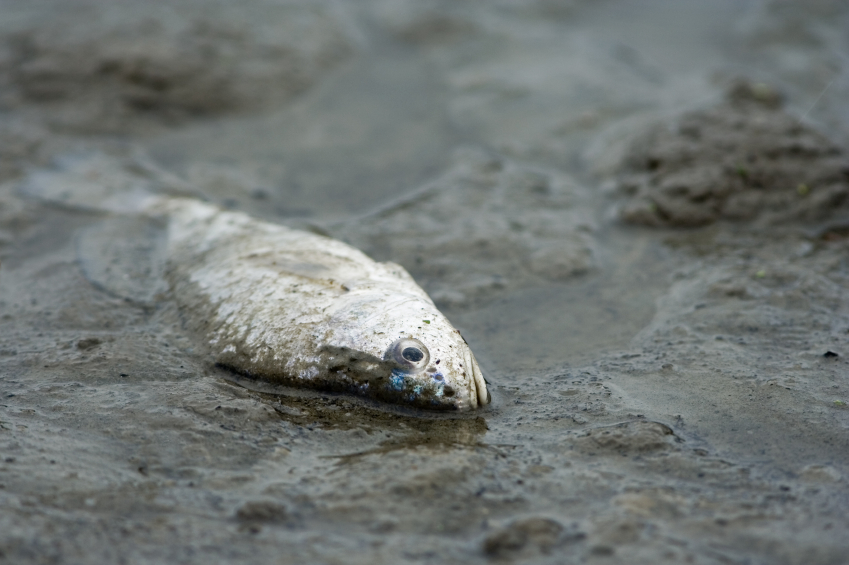Flumethrin — toxicity, side effects, diseases and environmental impacts
12/02/2017 / By Janine Acero

Flumethrin is a fat-soluble pyrethroid insecticide and acaricide used in the control of ectoparasites on farmed livestock like cattle, sheep, goats and horses, and domestic animals such as dogs. In addition, it is marketed for the diagnosis and control of varroatosis in bee hives. Flumethrin formulations come as a spray or dip and as a one-percent solution pour-on treatment.
Synthetic pyrethroids, including flumethrin, strongly disrupt the transmission of nervous impulses, causing spontaneous depolarization of the membranes or repetitive discharges. At low concentrations insects and other arthropods suffer from hyperactivity. At high concentrations they are paralyzed and die. Sensory and nervous cells are particularly sensitive.
The chemical name for flumethrin is a-cyano-4-fluoro-3-phenoxybenzyl 3-(b,4-dichlorostyryl)-2,2-dimethylcyclopropanecarboxylate. It has the molecular formula of C28H22Cl2FNO3.

List of known side effects
Flumethrin was absorbed rapidly, but not completely, after oral administration in all species investigated. The experimental exposures resulted in some side effects like skin lesions and small increases in the incidence of lung tumors in female animals.
In addition, the results of studies of developmental toxicity in pregnant rats and rabbits provided no evidence that flumethrin has teratogenic potential (disrupting the development of the embryo or fetus). Further toxicological studies also showed no evidence of carcinogenicity.
Body systems affected by flumethrin
A study with rats reveal that the highest concentrations of flumethrin and its metabolites were found in the liver. Concentrations were also found in the spleen, kidneys, lung, adrenal cortex, cartilage, bone marrow, pineal gland, pituitary, fat, brain, bone and subcutaneous adipose tissue.
Items that can contain flumethrin
Flumethrin can be found as an active ingredient in Bayvarol Strips and Bayticol, manufactured and supplied by Bayer plc and Bayer Limited.
How to avoid flumethrin
Avoid products that contain flumethrin as an active ingredient. Handlers, mixers and applicators of flumethrin may be exposed to its fumes in the workplace. The following are some safety and protective measures in case of contact with or exposure to flumethrin:
- Check with the workplace regulations on using respirators during handling of flumethrin. In case of accidental aspiration, leave the area of contamination and go to an open area with fresh air or proper ventilation. Seek medical attention immediately.
- Wear a protective suit, chemical-resistant gloves and safety footwear or safety gumboots. Remove any contaminated clothing item carefully, avoiding any contact with the skin. Rinse the contaminated part of the skin with soap and water.
- Wearing goggles or a face shield is required before handling any chemical. In case of contact, remove contact lenses (if applicable), then rinse with running water for several minutes. Seek medical help at once.
- Do not eat, drink or smoke near this substance. In case of swallowing any amount of flumethrin, give plenty of water to drink. Refer for medical attention immediately.
- Refer to the workplace regulations regarding proper handling of equipment before applying chemicals.
Where to learn more
Summary
Flumethrin is a fat-soluble pyrethroid insecticide used against ectoparasites on cattle, sheep, goats and horses and dogs. It is also used in the diagnosis and control of varroatosis in bee hives.
Flumethrin has caused skin lesions and small increases in the incidence of lung tumors in female animal test subjects. It also affects the liver, spleen, kidneys, lung, adrenal cortex, cartilage, bone marrow, pineal gland, pituitary, fat, brain, bone and subcutaneous adipose tissue.
Flumethrin can be found as an active ingredient in Bayvarol Strips and Bayticol.
Sources include:
Tagged Under: Flumethrin



















